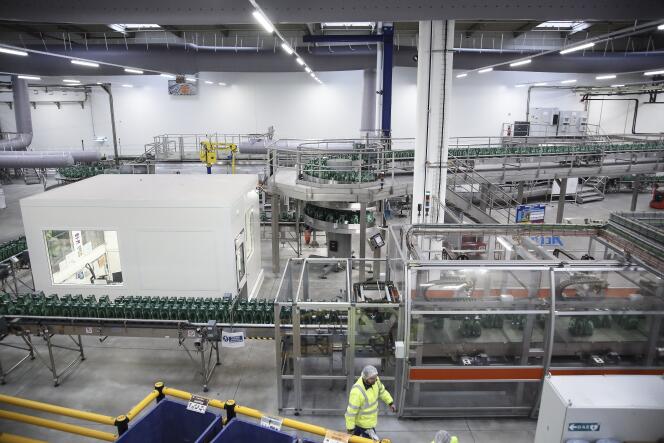


Vittel, Contrex, Hépar, Perrier, St-Yorre: Reputed to be France's purest and highly promoted internationally, the leading brands of bottled water have for many years been treated in ways that do not comply with regulations, notably due to sporadic bacterial or chemical contamination. While these purification techniques are authorized for tap water or water labeled as "made drinkable by treatment," they are prohibited for water labeled as "spring water" or "natural mineral water." These are supposed to come from preserved underground resources and must not be disinfected.
The joint investigation conducted over several months by Radio France's investigative unit and Le Monde uncovered the widespread use of such non-compliant treatment practices, with millions of consumers uninformed or even deceived for many years, and thousands of jobs at stake throughout France. Our investigation found that at least a third of French spring and mineral water brands have been, or still are, in breach of regulations.
Aware of these illegal practices by the Nestlé Waters group (which owns Vittel, Hépar, Perrier, and more) since August 2021, the French government has so far tried to manage the crisis with the utmost discretion. The matter has been followed closely at the highest level. On February 22, 2023, an interministerial meeting decided to relax regulations through orders issued by prefectures, the local authorities representing the state. The aim was to authorize microfiltration practices hitherto considered non-compliant, thereby enabling several sites to continue operating.
How compliant these regulatory relaxations are with European law is open to question. France has informed neither the European Commission nor the European Union's member states of the situation, as it was supposed to do under Directive 2009-54-CE.
Questioned in writing in mid-January, Nestlé Waters – whose brands were all concerned – did not respond to Le Monde and Radio France's requests until Sunday, January 28. Knowing that the information would be made public, the firm preferred to pre-emptively acknowledge its past practices, watering them down, on Monday, in the newspaper Les Echos. "There have been mistakes, leading to compliance issues," Muriel Lienau, president of Nestlé Waters, told the business daily. "While guaranteeing food safety, we used protective measures that were not in line with the regulatory framework or its interpretation." The company cited the need "to overcome the impact of climate change and rising water stress, which were partly affecting the minerality of its waters," never the presence of bacteria or pesticide metabolites in its raw waters.
You have 85% of this article left to read. The rest is for subscribers only.
